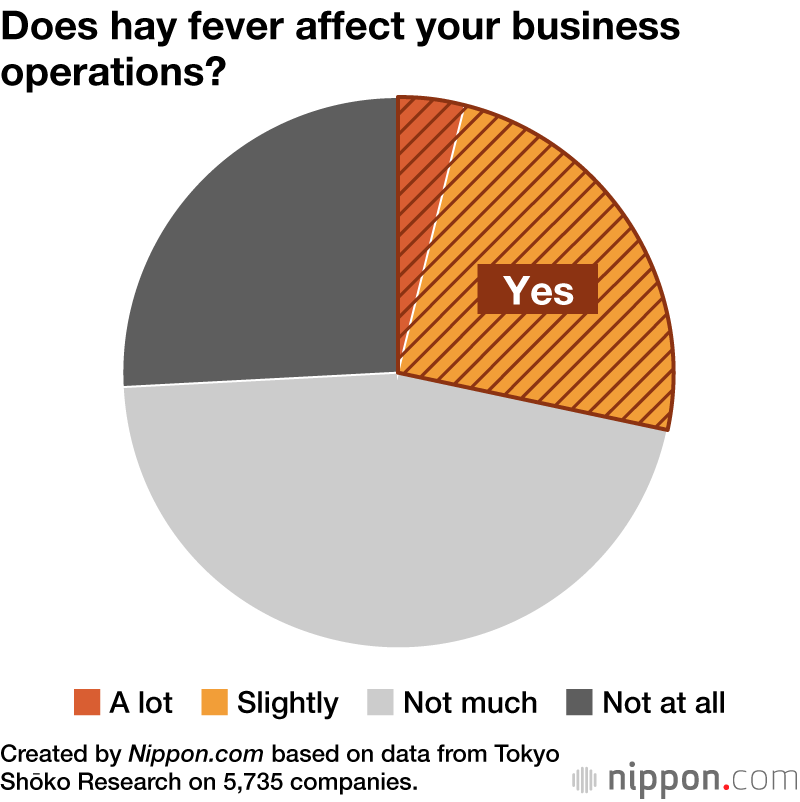
Hay Fever Negatively Affecting 30% of Companies in Japan
Health- English
- 日本語
- 简体字
- 繁體字
- Français
- Español
- العربية
- Русский
Pollen allergies now affect more than one in three Japanese people, so hay fever is now regarded as a “national disease”. When spring comes around, many people find that along with itchy eyes and runny noses, they also get brain fog, meaning they cannot concentrate on their work. The government will push forward on more logging of sugi (Japanese cedar) plantations, the source of the pollen, with the aim of reducing the amount of these trees by 20% in 10 years’ time. It has also set a goal of developing agents to inhibit the dispersal of pollen to halve the amount generated after 30 years.
In a corporate survey conducted by Tokyo Shōkō Research in early June, when companies were asked if hay fever affects their business operations, 3.9% said “a lot” and 24.0% answered “slightly,” for a combined total of around 30% of companies.
Concerning specific types of impact (with multiple answers possible), 91.0% answered that there was a “decrease in employees’ work efficiency” and a further 21.1% identified an increase in absences due to medical check-ups.
Of the affected industries, 45.0% were hotel and accommodation, 44.0% automotive repair, and 43.4% related to social insurance, social welfare, and nursing care. The industries that noted no negative impact at all were those connected with financial instruments trading and commodity futures trading. Face-to-face service industries in particular are severely affected by the impact of hay fever.
(Translated from Japanese. Banner photo © Pixta.)

